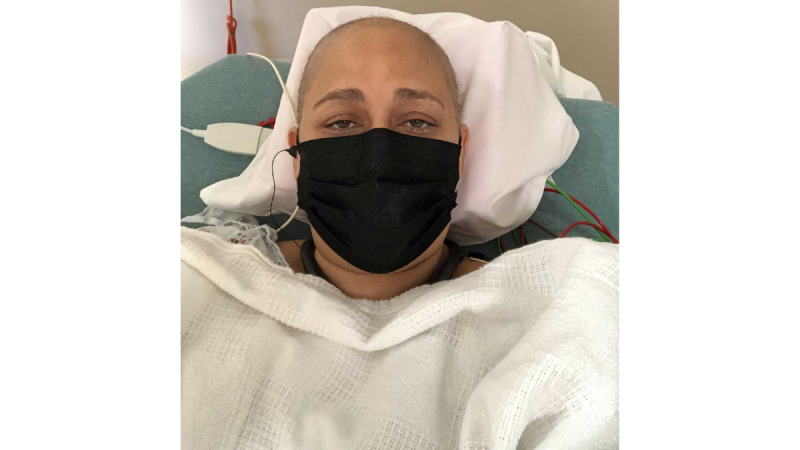Low Likelihood of Matched Bone Marrow Donors Amongst African Americans
Monica Yates Mitchell received chemotherapy at UAB Hospital for acute myeloid leukemia, a blood cancer.
Finding a 100% bone marrow match is a challenge for most people with cancer, but it’s even more difficult if you’re Black.
Be The Match, the largest and most diverse marrow registry in the world, only carries 4% of their registry from African Americans. Research showed bone marrow matches are best among people of the same race and ethnicity.
This makes Black people far less likely to find a bone marrow match when searching for a cure for blood cancer.
Monica Yates Mitchell experienced this challenge first-hand when she was diagnosed with acute myeloid leukemia. She’s a real estate agent based in Hoover.
“I have been really excited working with people and just living my best life. Until this horrible, horrible disease came knocking on my doors,” Mitchell said.
Stephanie Jackson, an account manager with Be The Match, said African-Americans have an especially hard time matching with donors compared to whites.
“If you are Caucasian, and you do not have a match in your family, you have a 77% chance of finding a match,” Jackson said.
But for African Americans, that drops to 23%, because only a tiny fraction of registered donors are African American, Jackson said.
Dr. Antonio Di Stasi, an oncologist at the University of Alabama at Birmingham, said there are a few reasons for this, including lack of education and concern the donation could cause medical problems. He also said Black people who are matched with a patient are more likely to cancel their appointments or not show up.
Many people also worry donating bone marrow is painful. Donors may experience some discomfort, Jackson said, but most people who donate are willing to do it again. Then there’s the hurdle of pre-existing health conditions that limit African-Americans from even being able to register to see if they are a match.
“We want a cure for cancer. We have a cure for acute myeloid leukemia, and that is a bone marrow transplant,” Mitchell said.
To help with the disparity, Be The Match is doing advocacy work. They’ve recruited young Black donors since people ages 18 to 44 have the best transplant success rates. The organization recently held a registration drive at Miles College in partnership with Mitchell’s family and friends. Be The Match is also planning more at registration drives at Alabama A&M and Alabama State universities. It’s part of the group’s partnership with Historically Black Colleges and Universities.
Right now Mitchell is going through chemotherapy with the hope that soon there won’t be any signs of leukemia. If chemo removes her cancer, Mitchell will be able to get a bone marrow donation from one of her two sons who are a 50% match. It isn’t ideal, but it’s some hope for now.
She’s also building awareness around bone marrow donation in the Black community. Her efforts will be honored in August by the American Cancer Society at the 2021 Hope Gala in Birmingham.
“This is my passion — just trying to educate people, letting them know and have choices,” Mitchell said.
Q&A: How harm reduction can help mitigate the opioid crisis
Maia Szalavitz discusses harm reduction's effectiveness against drug addiction, how punitive policies can hurt people who need pain medication and more.
The Gulf States Newsroom is hiring a Community Engagement Producer
The Gulf States Newsroom is seeking a curious, creative and collaborative professional to work with our regional team to build up engaged journalism efforts.
Gambling bills face uncertain future in the Alabama legislature
This year looked to be different for lottery and gambling legislation, which has fallen short for years in the Alabama legislature. But this week, with only a handful of meeting days left, competing House and Senate proposals were sent to a conference committee to work out differences.
Alabama’s racial, ethnic health disparities are ‘more severe’ than other states, report says
Data from the Commonwealth Fund show that the quality of care people receive and their health outcomes worsened because of the COVID-19 pandemic.
What’s your favorite thing about Alabama?
That's the question we put to those at our recent News and Brews community pop-ups at Hop City and Saturn in Birmingham.
Q&A: A former New Orleans police chief says it’s time the U.S. changes its marijuana policy
Ronal Serpas is one of 32 law enforcement leaders who signed a letter sent to President Biden in support of moving marijuana to a Schedule III drug.








